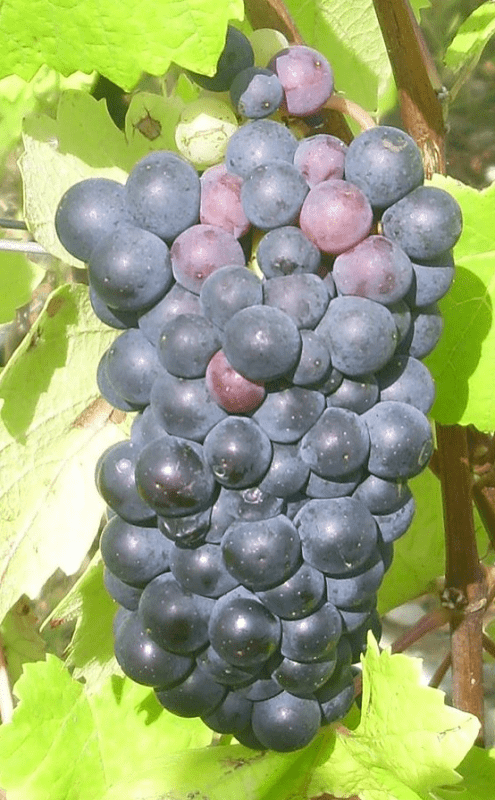Grape Profile
Pinot Noir: The Heartbreak Grape
Introduction
Pinot Noir is a finicky and difficult grape to grow, and it has earned the nickname “heartbreak grape” due to the challenges and setbacks that winemakers and grape growers face when working with it. Despite its reputation as a difficult grape, it is highly prized for its delicate, nuanced, and complex flavors, and it is a key grape variety in the wine industry. In this article, we will explore the history and origins of Pinot Noir, the characteristics and challenges of the grape, the role of terroir in shaping the flavor of the wines, and the winemaking techniques used to produce the wine. We will also discuss the versatility of Pinot Noir as a food pairing wine and the origins of the “heartbreak” nickname.
History and Origins of Pinot Noir
Pinot Noir is an ancient grape variety that is believed to have originated in the Burgundy region of France. The grape is thought to have been named after the pinecone-shaped clusters of berries that it produces, and it has a long history of cultivation in France and other parts of Europe.
It is known for its thin skin, small berries, and high acidity, which give the wine a delicate, nuanced flavor profile. The grape is also highly sensitive to its environment and winemaking techniques, which can significantly impact the character of the wine.
Pinot Noir has played a key role in the development of the wine industry in France and other countries, and it is a key grape variety in many regions around the world. In addition to its original home in Burgundy, it is now grown in a variety of regions and subregions, including California, Oregon, and New Zealand. Each region has its own unique terroir and climate, which can influence the character and style of the wines produced there.
Characteristics and Challenges
Pinot Noir is a finicky and difficult grape to grow, and it requires special care and attention in the vineyard. The grape has a thin skin, small berries and has a tightly packed bunch, which makes it susceptible to disease and pests. In addition, it is highly sensitive to climate and soil, and it requires specific conditions in order to thrive.
The challenges of growing Pinot Noir are compounded by the high demand for the grape and the limited availability of suitable growing conditions. It is a popular grape variety and there is a high demand for the wine, which can make it challenging for growers to meet the demand. The grape’s finicky nature and the limited supply of high-quality wines also contribute to the grape’s reputation as a “heartbreak” grape.
Pinot Noir and Terroir
Terroir is a term that refers to the unique combination of climate, soil and other environmental factors that shape the character of a wine. In the case of Pinot Noir, the grape is highly sensitive to terroir and can produce significantly different wines depending on where it is grown. The climate, soil, and other environmental factors in a particular region can influence the flavor and style of wines produced there.
Pinot Noir is grown in a variety of regions around the world, and each has its own unique terroir. In France, the grape is predominantly grown in Burgundy, where it produces wines with a distinct flavor profile characterized by red fruit, earthy, and spicy notes. Pinot Noir wines from California and Oregon tend to have a fruitier and more full-bodied character, while those from New Zealand are known for their bright, crisp flavors.
Winemaking
The winemaking techniques used can significantly impact the character and quality of the wine. The grape is sensitive to fermentation and aging techniques, and the winemaker’s choices can influence the flavor and structure of the wine.
Because it is naturally low in tannin, Pinot Noir is often aged in oak barrels to add complexity and structure to the wine. The use of oak can impart flavors such as vanilla, spice and toast to the wine, and the winemaker must carefully balance the oak flavors with the natural character of the grape.
Food Pairing
Pinot Noir is a versatile wine that pairs well with a wide range of dishes. The wine’s delicate, nuanced flavor profile makes it a good match for a variety of foods, including poultry, pork, and seafood. Pinot Noir also pairs well with dishes that have rich, creamy sauces, as the wine’s acidity can help to cut through the richness of the sauce.
The wine can complement or contrast with different types of food, and it can be matched with both bold and subtle flavors. Some specific food and wine pairings that work well with Pinot Noir include roast chicken or turkey with cranberry sauce, grilled pork chops with applesauce, and seared salmon with a cream sauce.
The “Heartbreak” Nickname
Pinot Noir has earned the nickname “heartbreak grape” due to the challenges that winemakers and grape growers face when working with the grape. The grape is finicky and difficult to grow, and it requires special care and attention in the vineyard. Pinot Noir is also highly sensitive to climate, soil and winemaking techniques, and it can be affected by a variety of pests and diseases.
The nickname “heartbreak grape” reflects the challenging and rewarding nature of working with Pinot Noir. The grape’s finicky nature and the limited supply of high-quality Pinot Noir wines make it challenging for growers to meet the demand for the wine. However, the resulting wines can be highly prized for their delicate, nuanced, and complex flavors, and the challenges of working with Pinot Noir only add to the wine’s reputation and value.
Conclusion
Despite its reputation as a difficult grape, Pinot Noir is highly prized for its delicate, nuanced, and complex flavors, and it is a key grape variety in the wine industry. The grape is highly sensitive to its environment and winemaking techniques, and the unique terroir of a particular region can significantly influence the character and style of the Pinot Noir wines produced there. Pinot Noir is also a versatile wine that pairs well with a wide range of dishes, and it is a good choice for food and wine pairings due to its wide range of flavors. If you are a fan of delicate and nuanced wines, Pinot Noir is definitely worth exploring, despite its reputation as a “heartbreak grape.”

